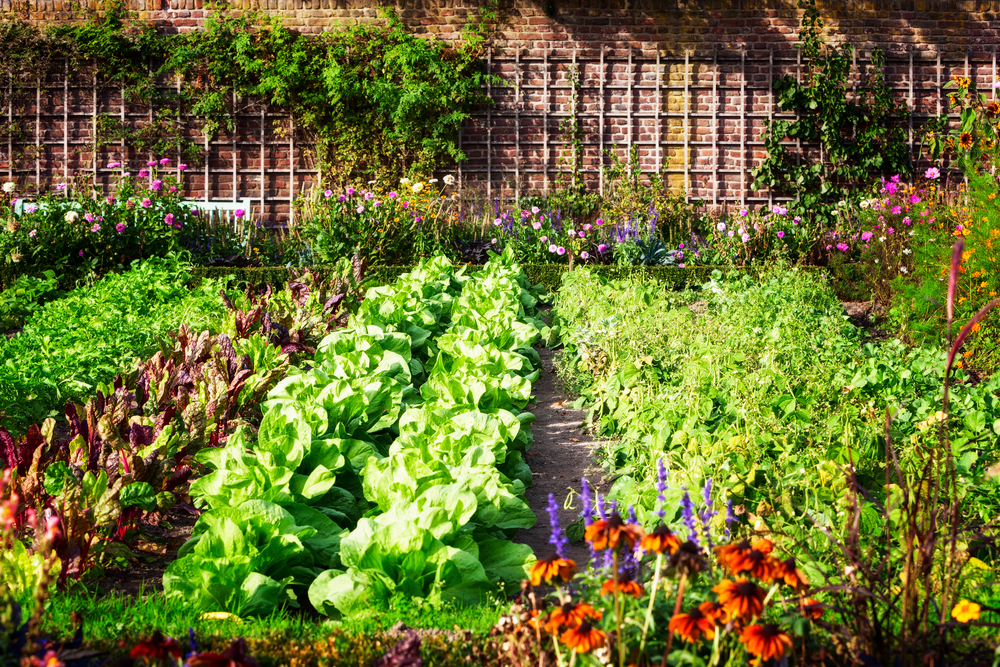Part of the Food Policy Snapshot Series
Policy name: Market Farm Apprenticeship Program
Overview: Inmates at the Mountain View Correctional Facility cultivate and harvest crops from a three-acre vegetable farm, bake bread from scratch, learn how to prepare healthy meals, and use food waste for composting.
Location: Mountain View Correctional Facility in Charleston, Maine
Population:
Mountain View Correctional Facility: 394 total capacity, plus 170 staff
Charleston, Maine: 1,409 (in 2010)
Food policy category: Nutrition, sustainability
Program goals: To improve inmates’ mental and physical well-being and to educate inmates about sustainable agriculture practices.
How it works: Mark McBrine, Food Service Manager at Mountain View, wanted to provide better food for the inmates in order to boost morale and mental health.
The baking program gives inmates an opportunity to work in the prison kitchen, baking fresh bread, rolls, muffins, pizza crust, and other “homemade” treats that are healthier than the processed, packaged foods the facility had previously purchased and served to inmates. While working in the kitchen, inmates earn money in addition to acquiring practical skills that can be transferred to the outside world when they are released.
Mountain View’s apple orchard and three-acre vegetable garden are located across from the prison on land leased from the Maine Department of Inland Fisheries and Wildlife. Inmates cultivate and harvest organic produce, including lettuce, spinach, Swiss chard, beets, cabbage, carrots, cucumbers, tomatoes, peppers, zucchini, and onions, to feed the prison population. Any excess produce is donated to other prisons or to food banks.
McBrine also educates the inmates about science and health so that they understand the importance of continuing what they are doing for the rest of their lives beyond prison.
Progress to date: McBrine began transforming the food environment at Mountain View when he took on the role of Food Service Manager in 2016. He started with a baking program, and once that was established, added the composting and gardening programs along with education for the inmates.
Why it is important: Food served in most prisons has been said to be part of the dehumanizing nature of prison systems. Most prisons in the United States spend no more than between one and three dollars per person per day on food, and they rely primarily on processed carbohydrates to meet the calorie mandate for meals. Budget cuts have also resulted in smaller portion sizes and lower quality foods served to prison inmates. Fresh fruits and vegetables are rarely available.
Poor nutrition is related to many adverse and potentially fatal health outcomes, including diabetes, heart disease, and many types of cancers, while a healthy diet can often help manage these same conditions and prevent further complications. Furthermore, the food we eat is linked to our brain chemistry, meaning that poor nutrition can negatively influence mood, a fact that is of particular importance in a prison population where stress, anxiety, and depression are common.
Program/Policy initiated: The program began when Mark McBrine became Food Service Manager at Mountain View in 2016.
Point of contact:
Mark McBrine
Food Service Manager, Mountain View Correctional Facility
Similar practices: In Maine, the Maine State Prison and the Bolduc Correctional Facility both have similar farm and gardening programs. Examples of other “farm-to-prison” programs across the country include those at the Richard J. Donovan Correctional Facility in California, the Washington State Department of Corrections, and Montana State Prison.
Evaluation: Mountain View’s program has saved the facility a lot of money by growing and preparing food in-house, so much so that McBrine reports being more under-budget than any other prison in the state. Inmates have also provided positive feedback on the quality of the food they eat and their mental well-being since participating in the program. Those working in the kitchen say the extra time and effort required to make healthier, more palatable meals from scratch is worth it.
Learn more:
- Food Sleuth Radio: Mark McBrine, Organic Farmer and Food Service Manager at Mountain View Correctional Facility in Charleston, Maine (Stitcher)
- Prison Food Is Making U.S. Inmates Disproportionately Sick (The Atlantic)
- Report Details Harmful Consequences of Prison Food Policies (Food Tank)
- What Prison Food in the US Really Looks Like, and Why Some Inmates Refuse to Eat it (Insider)
References:
- As COVID-19 Ups the Stakes, Advocates Say Prison Food Needs an Overhaul (Civil Eats)
- Bolduc Correctional Facility’s Farm (Unique Maine Farms)
- California Prison Farm-to-Table Program May Help Keep Inmates Fed and Free (Time)
- Eating Behind Bars: Ending the Hidden Punishment of Food in Prison (Impact Justice)
- Feeding Incarcerated People in a Pandemic: How One Maine Prison Is Adapting (Farm to Institution New England)
- The ‘Hidden Punishment’ of Prison Food (The New York Times)
- Inmates have Turned the Maine State Prison Grounds into a Lush Garden (Bangor Daily News)
- Learning to Bake Bread Gives Meaning to Prisoners’ Days (Press Herald)
- Mental Health of Prisoners: Identifying Barriers to Mental Health Treatment and Medication Continuity (American Journal of Public Health)
- Montana Correctional Enterprises Helps Inmates Rewrite Their Futures (Farm Flavor)
- Mountain View Correctional Facility (State of Maine Department of Corrections)
- Nutritional Psychiatry: Your Brain on Food (Harvard Health Publishing)
- Prison Gardens: Roots of Change (Washington State Department of Corrections)
- Why Good Nutrition is Important (Center for Science in the Public Interest)
- Why It Matters (Centers for Disease Control and Prevention)


